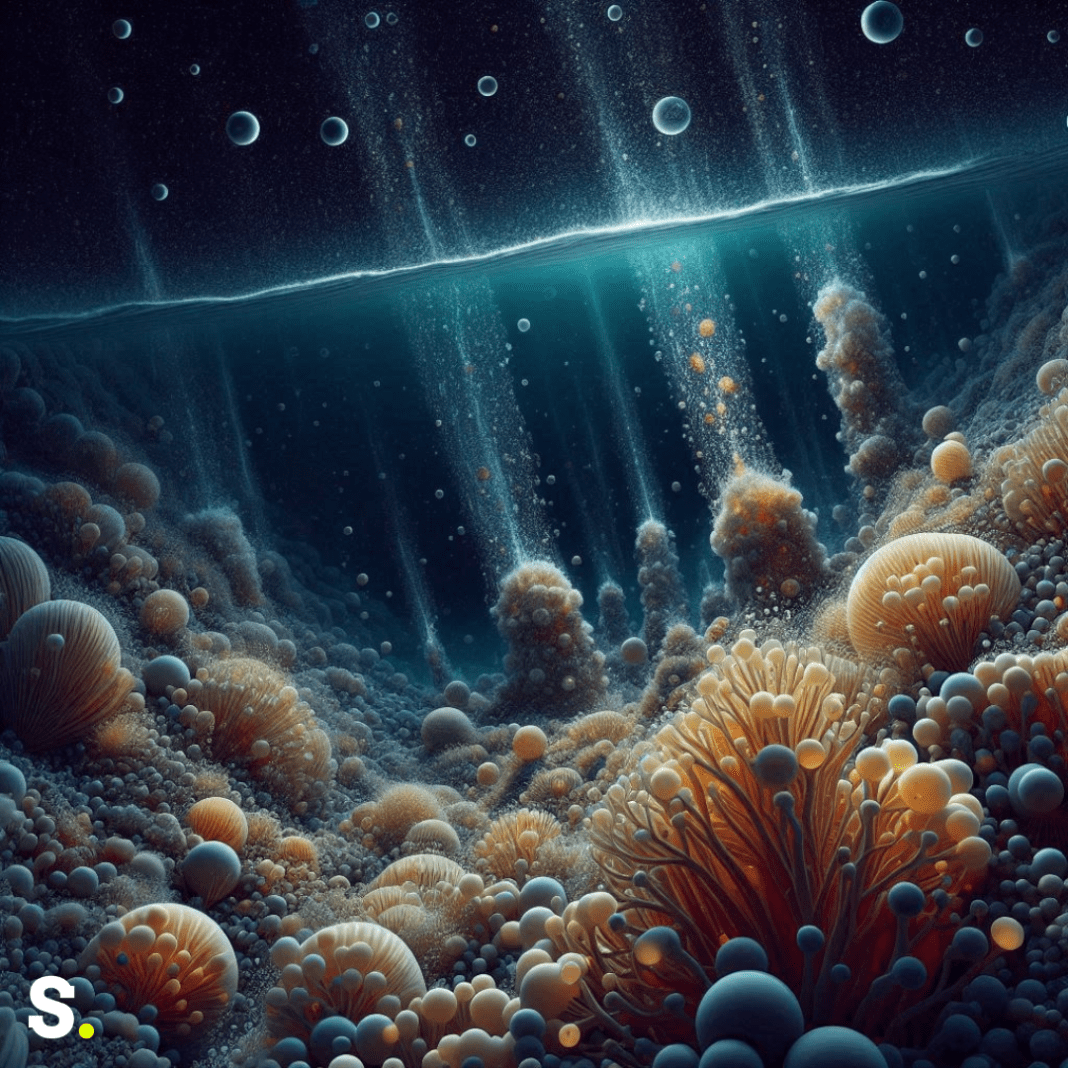Deep Sea Mystery
Scientists have recently discovered a strange phenomenon in the deep sea called “dark oxygen.” This amazing find has left experts scratching their heads because it goes against what we usually know about how oxygen is made. Normally, we learn that plants produce oxygen through a process called photosynthesis, which requires sunlight. But in this case, oxygen is being produced in total darkness, almost 4,000 meters (about 13,100 feet) below the ocean’s surface.
This discovery is shocking because it was believed that oxygen production without sunlight was impossible. Photosynthesis, the main process for oxygen production, needs light. Thus, how can oxygen be created in the pitch-black ocean’s depths, where light cannot penetrate? Plants are not the source of this oxygen, according to the study that was published in the journal Nature Geoscience.
A New Source of Oxygen
The study’s authors found that this deep-sea oxygen comes from metallic “nodules,” which look like lumps of coal. These nodules are splitting water molecules (H2O) into hydrogen and oxygen. This process is different from photosynthesis and suggests that there is another way oxygen can be produced on Earth.
This discovery has big implications for our understanding of life on Earth. Until now, scientists believed that Earth’s oxygen supply began with photosynthetic organisms, like plants and algae, that need sunlight to produce oxygen. But finding oxygen being made in the deep sea, where no light exists, challenges this idea. It makes scientists wonder if there could have been another source of oxygen in the early days of our planet, long before photosynthetic organisms appeared.
On the ocean floor, nodules resemble tiny, metal-rich boulders. These nodules contain elements such as manganese, iron, and nickel. They act like tiny factories, breaking apart water molecules to release oxygen. This process is fascinating because it occurs without any sunlight, in an environment where we thought such a thing was impossible.
Unanswered Questions about Dark Oxygen
This finding raises many questions for scientists. For example, how long has this process been happening in the deep sea? Could it have played a role in the beginning of aerobic (oxygen-using) life on Earth? These are just some of the mysteries that researchers now need to solve.
The discovery also has practical implications. The metallic nodules that produce this “dark oxygen” are similar to the ones found in areas targeted for deep-sea mining. These nodules are rich in metals and are considered valuable resources. However, knowing that they also produce oxygen means that mining them could have unknown effects on deep-sea ecosystems.
Back in 2013, during fieldwork in the Clarion–Clipperton Zone, researchers noticed something similar. This area is a potential target for mining metal-rich nodules. The researchers were studying sea-floor ecosystems when they observed the mysterious oxygen production. It took almost eight years for them to realize the significance of this amazing new process happening so deep down on the ocean floor.
The discovery of dark oxygen is a reminder of how much we still have to learn about our planet. It shows that even in the most extreme and unexplored parts of the world, there are still secrets waiting to be uncovered. This finding not only changes our understanding of oxygen production but also opens up new questions about the history of life on Earth and the deep-sea environment.
The nodules found in the deep sea are formed over millions of years, accumulating layers of minerals from seawater. They provide a habitat for various marine organisms, and their presence indicates that the deep ocean is a much more dynamic and active environment than previously thought.
The discovery of dark oxygen could also lead to new insights into how to protect and manage deep-sea ecosystems. As scientists continue to study these metallic nodules and the oxygen they produce, they hope to learn more about the complex processes that sustain life in the deep ocean. This knowledge could help us better understand our planet and its history, as well as inform future efforts to conserve marine environments.
The phenomenon of dark oxygen is not just a scientific curiosity; it has the potential to reshape our understanding of Earth’s biosphere. The deep sea, often thought of as a cold, dark, and lifeless place, is proving to be full of surprises. This discovery highlights the importance of exploring and studying the ocean’s depths, where many more secrets are likely waiting to be uncovered.
The discovery of dark oxygen is a groundbreaking find that challenges our current understanding of oxygen production and the history of life on Earth. It opens up new avenues for research and raises important questions about the deep-sea environment. As scientists continue to investigate this phenomenon, we can expect to learn more about the hidden processes that sustain life in the most unexpected places.




